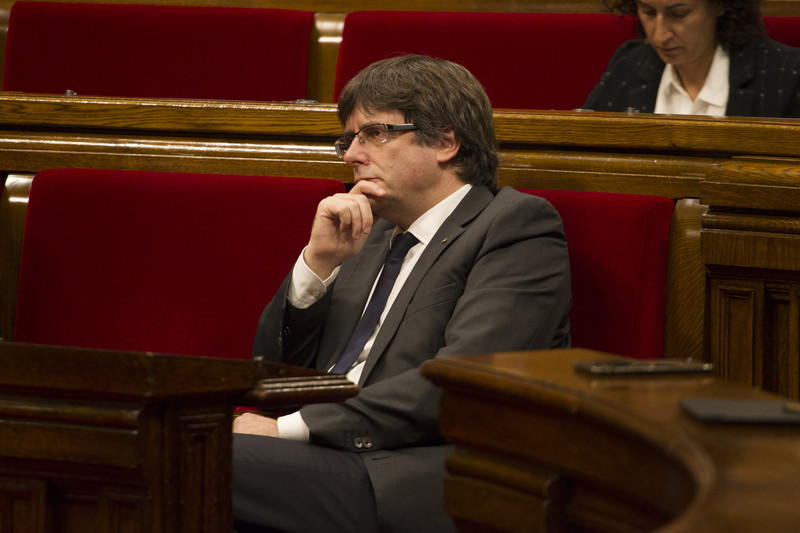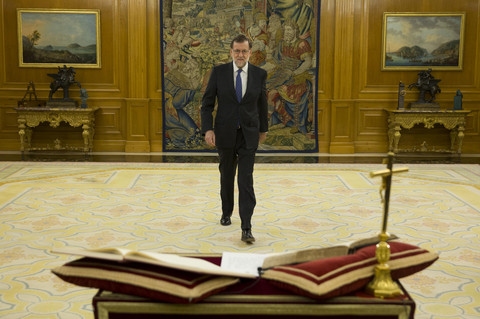Madrid and Barcelona on collision course.
The Catalan parliament could declare independence on Friday (27 October),
while the Spanish senate is set to vote in favour of suspending Catalonia's
autonomy.
"It is the parliament's duty to proceed with what the parliamentary
majority determines in relation to the consequences of the application of
article 155 against Catalonia," Catalan leader Carles Puigdemont said on
Thursday.
Article 155 of the Spanish constitution is the clause that allows the
national government to take "all measures necessary" to make a region meet its
obligations to the state.
Puigdemont's governing coalition, Junts pel Si, said it would "continue
with the mandate from the Catalan people," given in the 1 October independence
referendum, which had been declared illegal by the Spanish Constitutional
Court
With the support of CUP, a staunchly separatist radical left party, Junts
pel Si has a majority in the region's parliament.
Meanwhile, Spain's prime minister, Mariano Rajoy, will appear in the
Spanish Senate in Madrid to argue for the implementation of article 155 in
Catalonia.
If the upper house adopts the application of article 155, in a vote set
for Friday afternoon, the plan would come into effect on Saturday.
The Spanish Socialist Party and the centre-right Ciudadanos party both
support the move.
Rajoy said last Saturday that his government would decide to trigger
article 155 for the first time in the country's history, to quell the Catalan
independence movement.
He said that the move would "restore the rule of law" in the
region.
The activation of article 155 is expected to suspend the powers of the
Catalan government, limit the activities of the Catalan parliament, and take
control of the region's police, finances, and public media.
"If article 155 is applied, as is expected, the lessening of the
self-government will be merciless and it will be very difficult to recover it
again," Xavier Arbos, a constitutional law professor at the University of
Barcelona, told EUobserver.
Regional elections could be held within six months, as planned by Rajoy,
to bring Catalonia's governance back to normal.
But Arbos pointed out that some parts of Catalonia's autonomy, such as
the management of finances or the police, "are not precisely written down in the
[region's] statute and they will be very difficult to recover because the
confidence between the institutions has been broken."
The Catalan police, the Mossos d'Esquadre "have lost some of their powers
already," he noted. "Judges give them less work to carry out and the prosecutors
have suspended the classes they gave them at the academy."
The head of the Mossos, Josep Lluis Trapero, has been charged with
sedition by Spanish prosecutors for not preventing the October referendum. He is
now awaiting trial. EU Observer.



.jpeg)